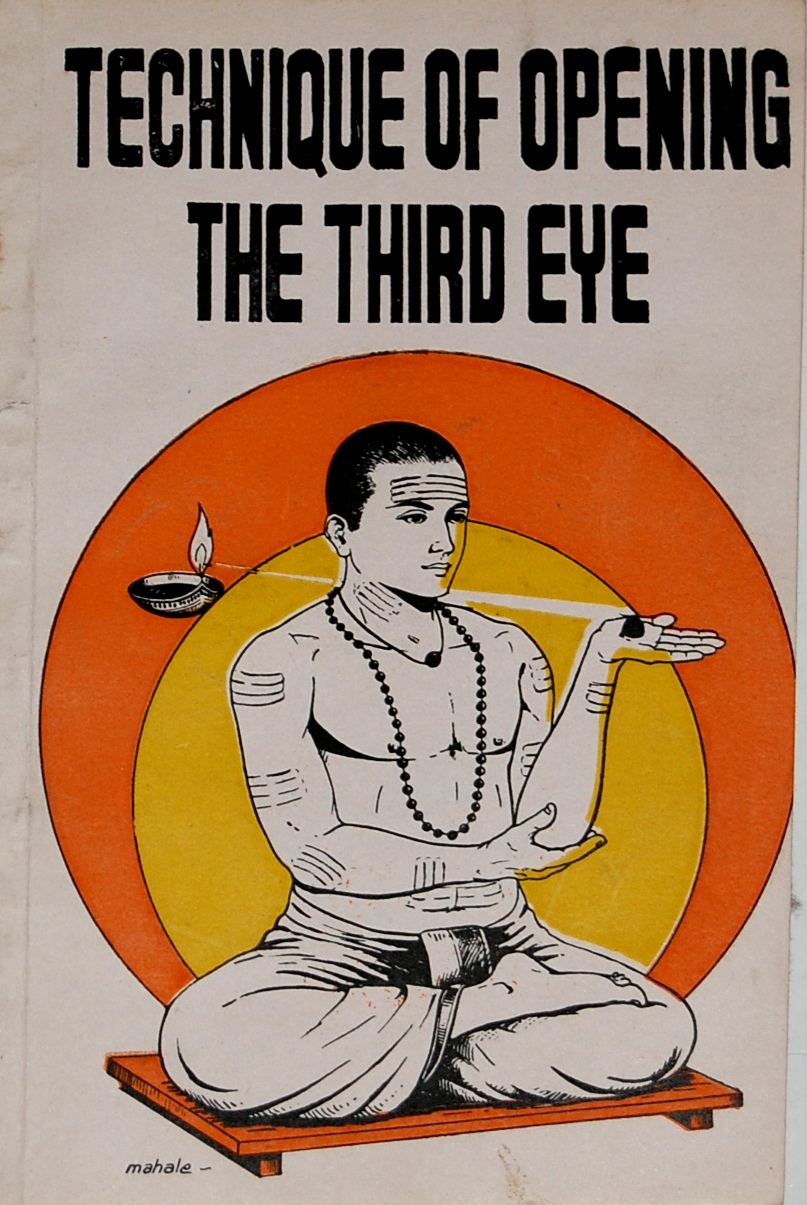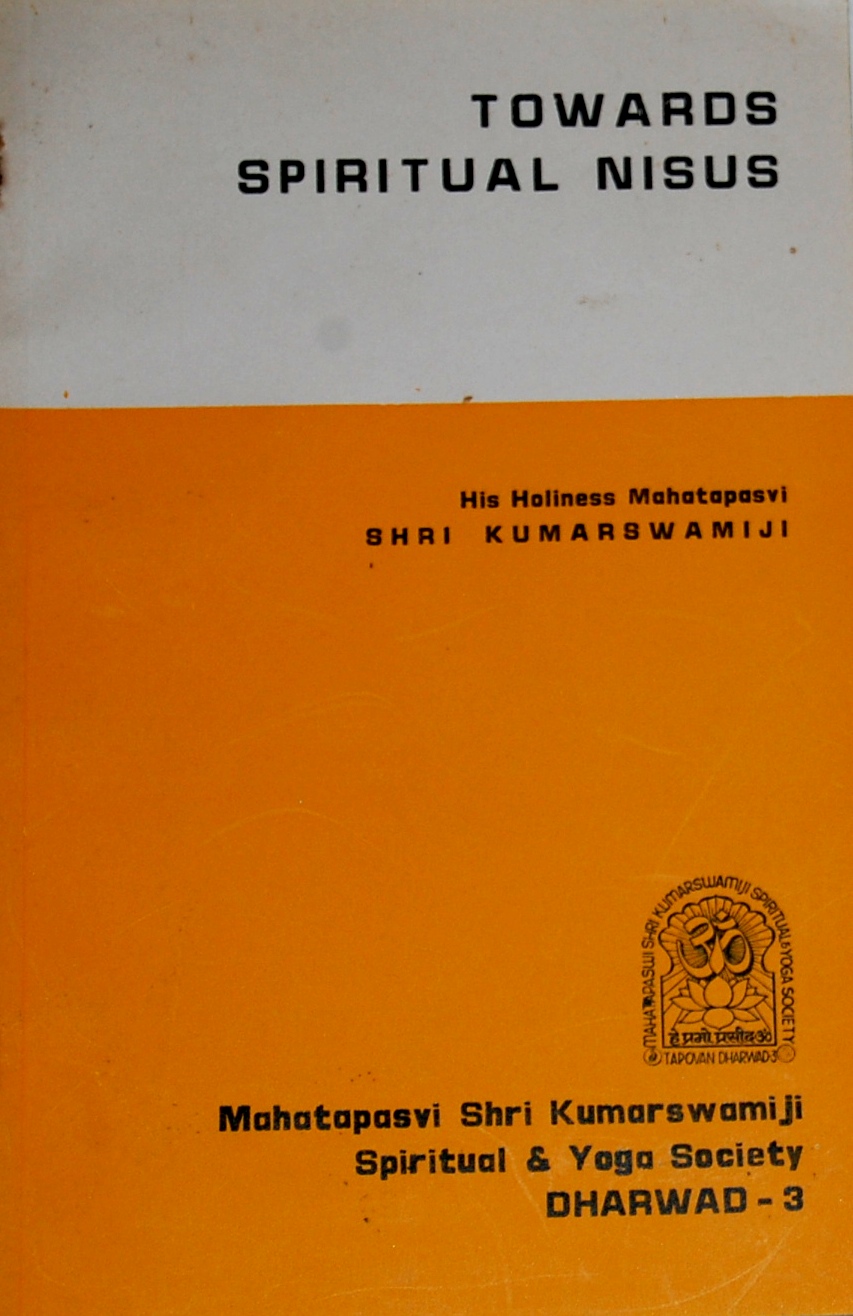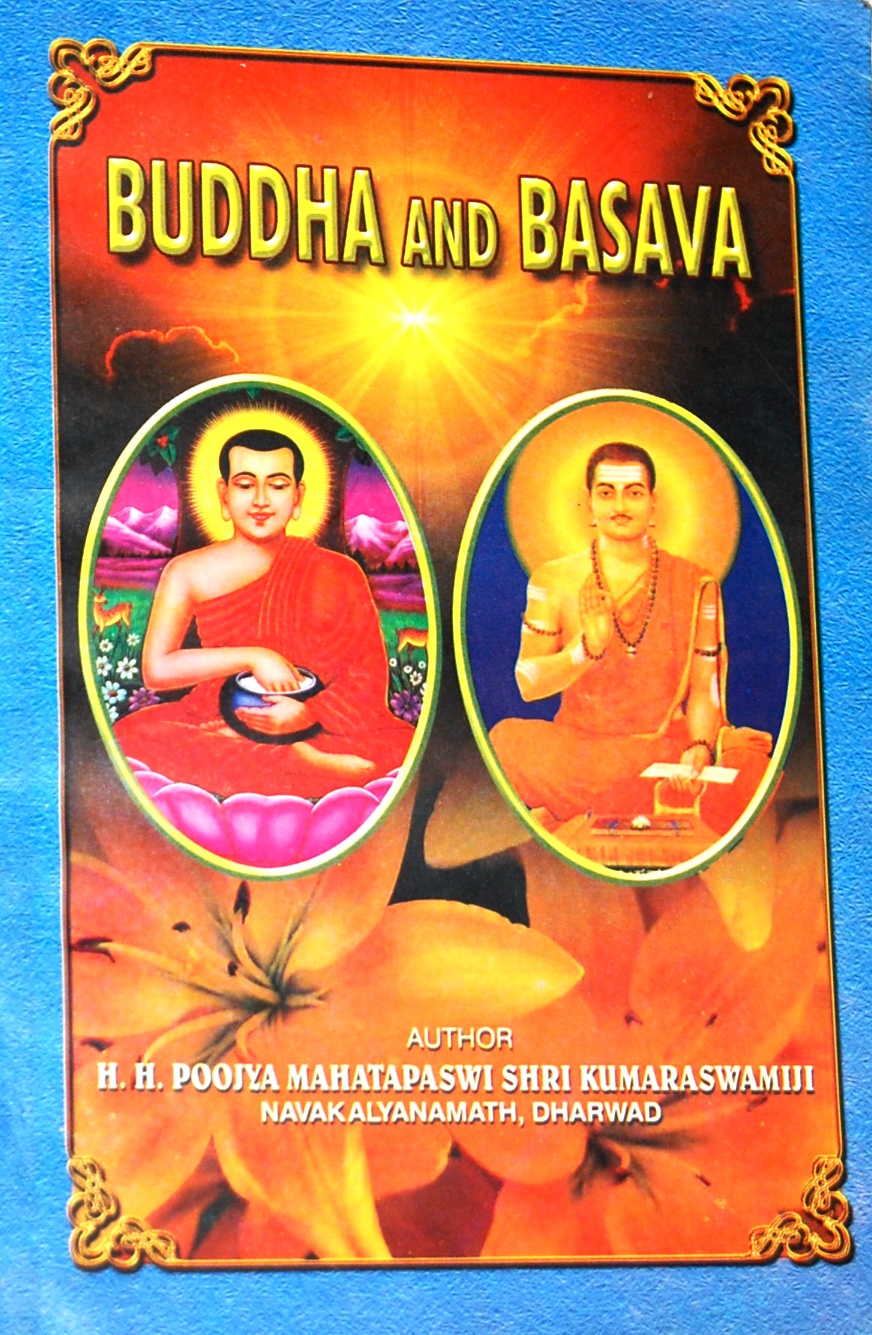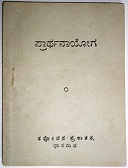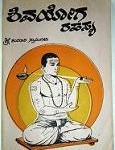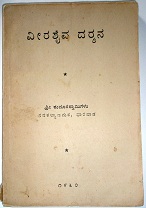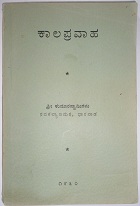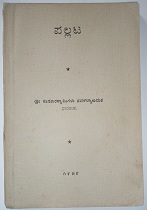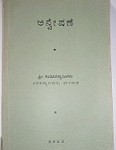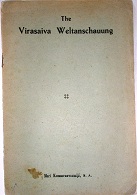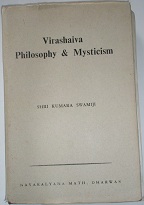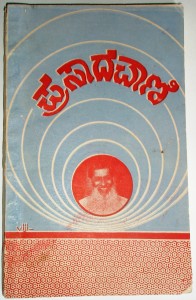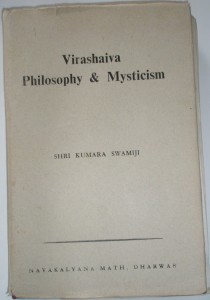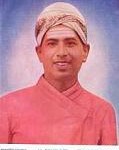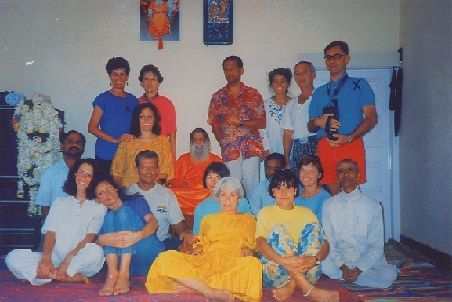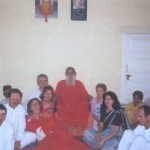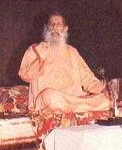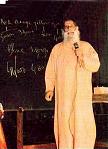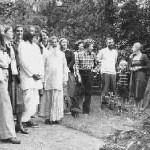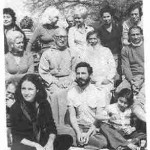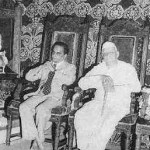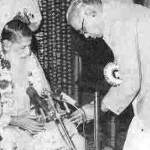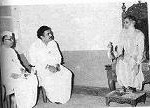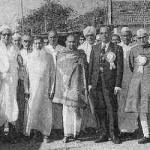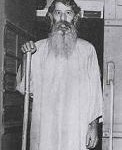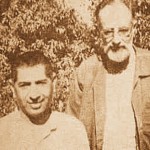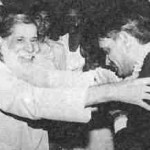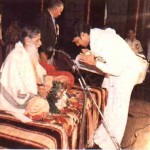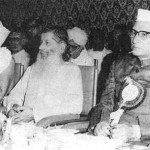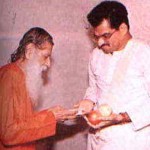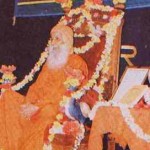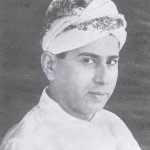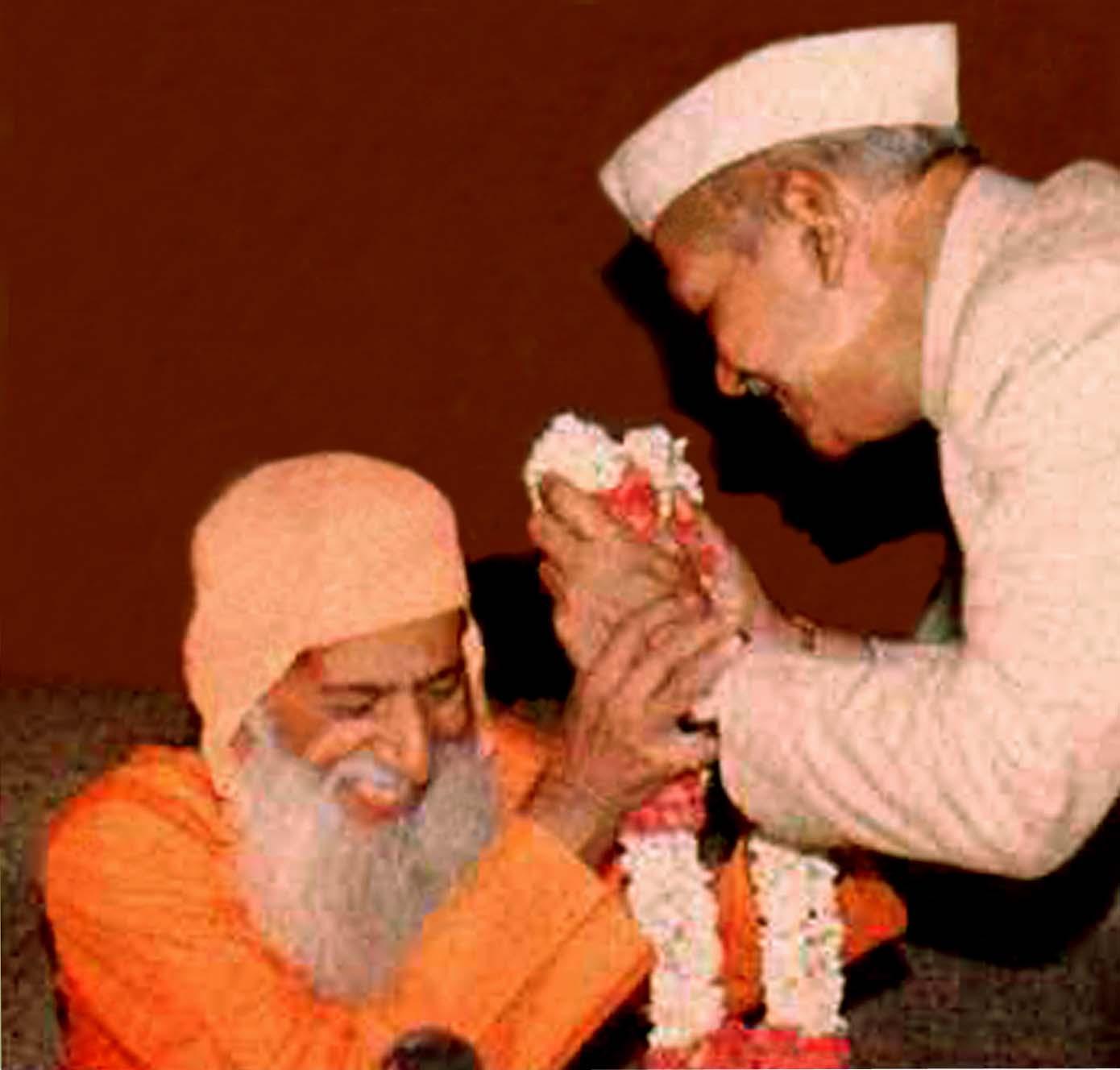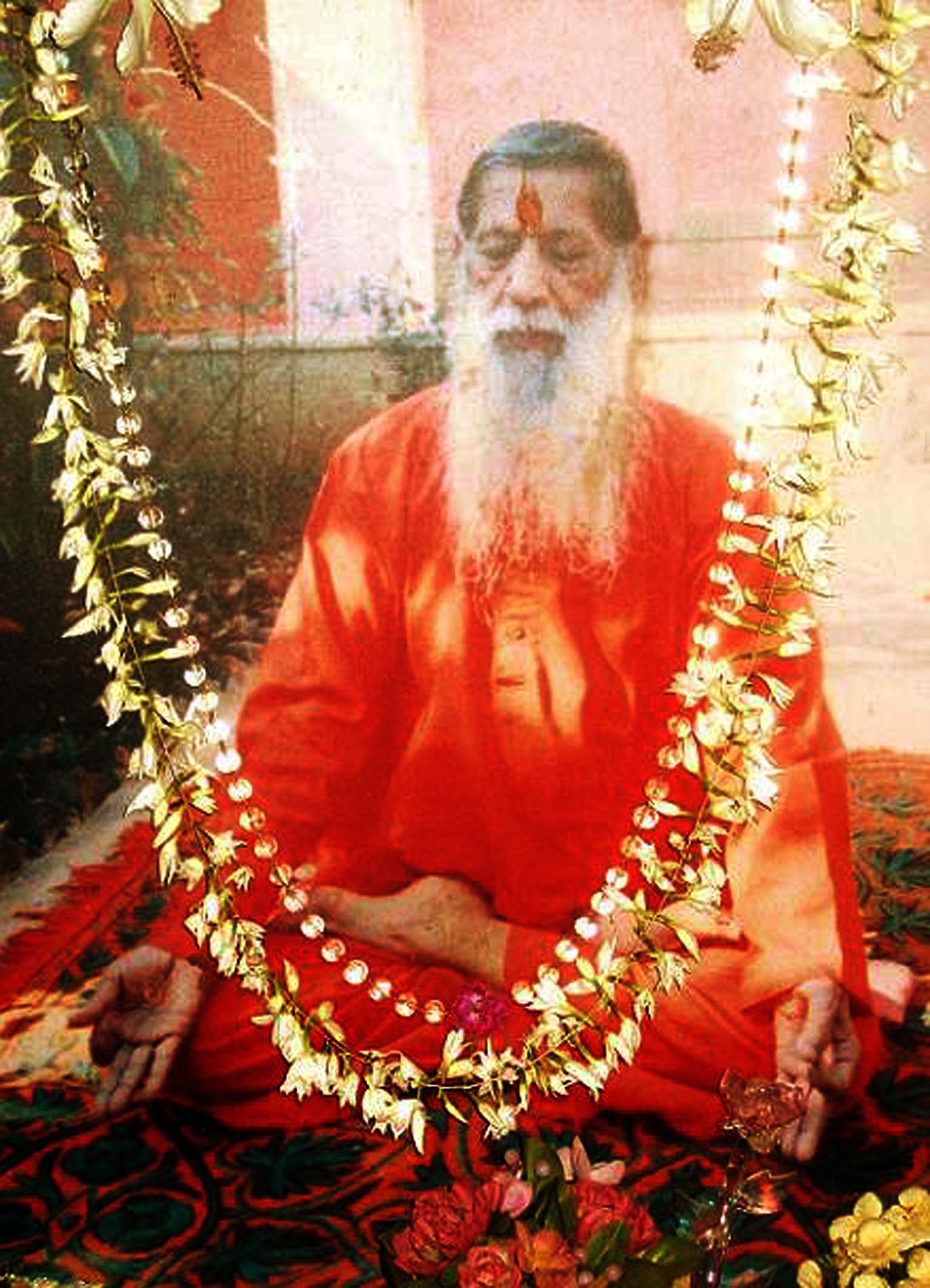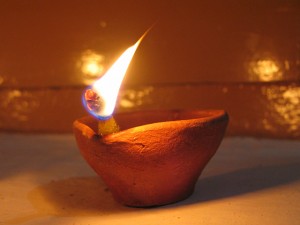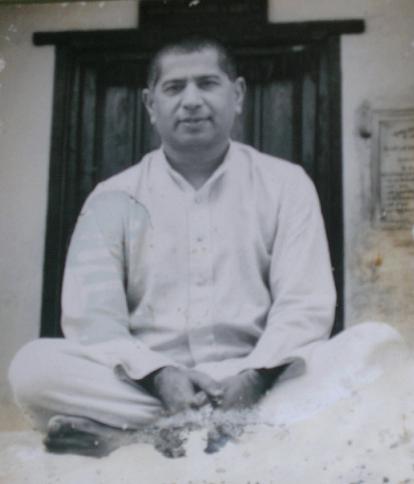If the true end of life is to know the life that never ends, we are then to strive hard to ward off the obstacles offered by the inconsistent Matter, Prakrti in the way of self-development. The Sharana agrees with William James when he says “If this life be not real fight in which something is eternally gained for the universe by success, it is no better than a game of private theatricals from which one may withdraw at will.”
In the words of the Sharana man is Pashupati, he is at once an animal and an angel. But he opines that animal should not be destroyed but should be so trained as to obey the will and order of its Lord, the angel. The way of Pashupati or the Superior man is therefore three-fold: “Virtuous, he is free from anxieties; wise, he is free from perplexities; bold, he is free from fear.” The Pashupati is therefore sans pride, sans envy, sans anger. For the Sharana says, “The proud man has no God; the envious man has no neighbour; the angry man has not himself. What good, then in being a man, if one has neither himself nor a neighbour nor God!.”
The Sharana never suffers from what the French men call impuissance de vivre, meaning thereby an incapacity to face the facts of life and adapt oneself to its hard and unfavourable conditions. His is a philosophy of virtuous action and vast knowledge. Philosophy, if rightly defined, is nothing but the love of wisdom. To be a philosopher is not merely to have subtle thoughts, but so to love wisdom as to live according to its dictates. Philosophy has therefore two aspects: one is the love of wisdom, another is the life of action. Or rather we may say, in the words of Southey, that philosophy is of two kinds: that which relates to conduct that which relates to knowledge. The first teaches us to value all things at their real worth, to be contended with little, modest in prosperity, patient in trouble, equal-minded at all times. The second teaches man to know more; the more he knows, the more he is desirous of knowing; and yet the further he advances in knowledge, the better he understands how little he can attain, and the more deeply he feels that God alone can satisfy the infinite desires of an immortal soul. It is this deep feeling that drives him towards the realization divine joy which resides in the heart of tings. If mysticism is the art of experiencing unmixed and pure delight in all the contents of the cosmos, the Sharana gains this delight through detachment of Idea, Jnana and domination of will, Kriya. Schopehnhauer has written a famous philosophical work whose title is The World as Will and Idea. The conception which underlies it is that there are two aspects of the world-process, one as will and the other as idea. The world arises for Schopenhauer when there has been evolved a nervous system sufficiently organized to be the instrument of knowledge. The will, therefore, becomes the thing-in-itself and rules ruthlessly. It is the will-to-live that conditions all our modes of thought and activity. This activity is the root cause of pain in this world which preponderates over pleasure. The only way to cut oneself away from this activity, according to him, is to snub down the will-to-live, not to desire the riches of the world; but to renounce them, and to become an ascetic.
But while pointing out that man can never find any satisfaction in trying to dominate the world-process by his insignificant will, Schopenhauer points out a way of release, which is by identifying one with the world as idea. If once man learns to react to the world, not in its manifestations as will, but in its manifestation as idea, then he comes into the possession of profound peace. For this, man must detach himself from the world as will by the development of philosophic (mystic) sensitiveness. When he reacts philosophically to the world, he can sense it without being necessarily dragged into the terrible machinery of the world as will. However laudable may be his treatise, Schopenhauer is one-sided in his presentation of the truth; he has presented the ideal aspect of truth, ignoring its real. The philosophical conception of attaining peace or partial redemption by discovering the world as Idea is one of the dominant factors of idealism, whether that idealism be philosophic or psychic, literary or artistic. In all the shades of idealism, the conscious or sub-conscious aim is to present types, from the observation of which we are to gain peace through catharsis. We may, as philosophers and artists, gain a kind of detachment from the world as will and watch it as idea. But so long as we are in any form of existence, we are necessarily part of the world and there can be no complete detachment from it. That peace which is gained by the identification with the world as idea, cannot be final since there is an element of incompleteness in it. In addition to domination of the world. To state it in other words, we should not only detach ourselves from the world and see it as idea, but we should be at the same time identified with the world as will. But we should live our own will and not the world’s will. This domination of the world as will is equally the theme of mysticism. A true mystic when he is detached and serene, is yet so intimately identified with the world as will, that he allows all the forces of that world to flow through him. Still he should not allow them to dominate him, for he must create out of their substance a thing of his will, not of theirs. Every great mystic is a vortex of life’s forces and the more he dominates them and then reshapes them, the greater is he as an artist.
The joy of creation, which means so much pain and renunciation to the true mystic, is made a thousand times more acute after the realization of God. Life is more delicately sensed, and so becomes a cause of greater agony. This feeling of agony is pictured in many a saying of the Sharana which closely resembles the telling epigram of James Thomson:
“Once a saintly passion
I cried with desperate grief
O Lord, my heart is black with gile,
Of sinners I am chief.
Then stopped my guardian angel
And whispered from behind,
Vanity, my little man,
You are nothing of the kind “.
But it also becomes larger, fuller, more exquisite and therefore in all ways a greater and a more beautiful thing. For the Divine is Will as it is Wisdom. The Sharana has the knack to recognize will and wisdom as identical and not as antithetical. He is the true philosopher, for philosophy is the love of wisdom but it is so to love as to live its dictates. The world cannot show us a more exalted character than that of a truly religious philosopher or mystic who delights to turn all things to the glory of God, who in the objects of his sight, derives improvement to his mind, and in the glass of things temporal, sees the image of things spiritual. This spiritual vision propels the Sharana to intuit the world as idea and to look upon it as an extension of the soul. “This outer world,” says Alfred Noyes, “is but the pictured scroll of worlds within the soul; a coloured chart, a blazoned message book wherein who rightly look may spell in the splendours with their mortal eyes and steer to paradise.”
To the Sharana who desires to dominate the world as will life is an activity, it is a serious business to be entered upon with courage and in a spirit of self-sacrifice. Life is hardly respectable if it has no generous task, no duties that constitute a necessity of existence; for every man’s task is his life-preserver. This necessity of task bespeaks of the human diversity. If human diversity is an incredible fact, the ideal society is one in which as many types as possible can develop in accordance with their possibilities. So far every society has tended to idealize one particular type. Some have been narrower than others. The immense strength of Lingayatism lies largely in its doctrine of vocation, Kayaka, according to which a man or woman may be called by God to any of a large variety of careers and please Him in any of them. The Sharana therefore opines that the meaning, the value, the truth of life can be learnt only by an actual performance of its duties. For, as Bailey says, we live in deeds not in years; in thoughts, not in breaths; in feelings, not in figures on the dial. We should count time by heart-throbs. He most lives who thinks fast, feels the noblest and acts the best. In great and sober moments life seems neither right nor wrong, but something greater and more heroic where fortune is a prize to be won; adventure is the road to it and chance is what may lurk in the shadows at the road-side. Thus sings the Sharana, “A sacred burden is this life ye bear; look on it, life it, bear it solemnly; fail not for sorrow, falter not for sin, but march onward, upward, till the goal ye win.” Life is fruitful in the ration in which it is chalked out in noble action and patient perseverance. “God has made this world a field of battle and filled it with the cries of combatants. Would you filleth his peace without paying the price he has fixed for it?” To pay the price is to fight with injustice, to forgive the wrong-doers, to forget the past and to forbear the ill-graces. If the true end of life is to know the life that never ends, we are then to strive hard to ward off the obstacles offered by the inconsistent Matter, Prakrti in the way of self-development. The Sharana agrees with William James when he says “If this life be not real fight in which something is eternally gained for the universe by success, it is no better than a game of private theatricals from which one may withdraw at will.”
As there are two phases of the world-process, so there are two personalities in man. Modern psychology has recognized the existence of this duplex personality. Psychology addresses these two personalities as Ego and Super-ego, while philosophy names them as the natural self and the transcendental self. Wherever any writer describes man, he depicts him in this double capacity. Byron aptly remarks what man is : ‘Half dust, half deity alike unfit to sink or soar.’ How poor, how rich, how abject, how august, how complicate, how wonderful is man! Shakespeare speaks of man in his Super-ego: ‘What a piece of work man is! How noble in reason! How infinite in faculties! In form and moving, how express and admirable! In action, how like an angel! In apprehension, how like a God! But Pascal speaks of man in his Ego: ‘What a chimera is man, what a confused chaos! What a subject of contradictions! A professed judge of all things and yet a feeble worm of the earth! The great depository and guardian of truth, and yet a mere huddle of uncertainty! The glory and the scandal of the universe.’ Carlyle speaks of man in his double capacity: ‘He is of the earth, but his thoughts are with the stars. Mean and petty his wants and desires; yet they serve a soul exalted with grand, glorious aims, — with immortal longings, with thoughts which sweep the heavens and wander through eternity. A pigmy standing on the outward crest of this small planet, his far-reaching spirit stretches outward to the infinite, and there alone finds rest.’ Emerson in more eloquent in his observation on man: “Every man is a divinity in disguise, a god playing the fool. It seems as if heaven had sent its insane angels into our worlds as to an asylum. And here they will break out into their native music, and utter at intervals the words they have heard in heaven; then the mad fit returns and they mope and wallow like dogs.’ Man is an animal; but he is an animal plus something more. ‘He is a mythic earth-tree,’ says the Sharana, ‘whose roots are in the ground, but whose topmost branches may blossom in the heavens.’ In the words of the Sharana man is Pashupati, he is at once an animal and an angel. But he opines that animal should not be destroyed but should be so trained as to obey the will and order of its Lord, the angel. The way of Pashupati or the Superior man is therefore three-fold: “Virtuous, he is free from anxieties; wise, he is free from perplexities; bold, he is free from fear.” The Pashupati is therefore sans pride, sans envy, sans anger. For the Sharana says, “The proud man has no God; the envious man has no neighbour; the angry man has not himself. What good, then in being a man, if one has neither himself nor a neighbour nor God!.”
In accordance with the duplex personality of man, life also presents twin aspects – sham and real: the sham life of the ignorant ego, the real life of the wise super-ego. It is true that Sharana bewails the transitorness of the sham life only to invite us to know and study the real life. The melancholy refrain of ‘vanity of vanities, all is vanity’ is often-times heard with respect to the sham life of the ignorant ego. “This (sham) life is a hollow bubble, don’t you know? Just a painted piece of trouble, don’t you know? We come to earth to cry, we grow older and we sigh, older still and then we die, don’t you know? This pessimistic tone exists only as a discord in transition to the real accord. The Sharana is fully alive to the fact that unless man conquers his natural self, gains mastery over his passions and instincts, he cannot progress in self-development; he cannot become a Pashupati. The secret of all success is to know how to deny oneself; for self-denial is the price has to pay to buy the Divine peace. To this end lower must be sacrificed for the higher; the coarser give place to the finer; the ego surrender to the super-ego. Every step of our progress towards success is a sacrifice; a self-denial. We gain by losing, grow by dwindling, live by dying/ Self-denial is indeed a mark of the higher nature. It is indispensable to a strong character. It is the result of a calm, deliberate, invincible attachment to the highest good, flowing forth in the voluntary renunciation of everything inconsistent with the glory of God or with the good of our fellow- men. Self-denial therefore indicates not only control or mastery over the lower nature but as well its sublimation. The Sharana is loud in admonishing man to get mastery over his natural instincts so as to transform them into normal intuitions.
If one wishes to learn self-mastery, he should begin by yielding himself to the one Great Master. For we are very apt to be full of ourselves, instead of Him who sees all and rules all. Self-conceit is a greater enemy to self-control. “Whenever nature leaves a hole in man’s mind, she generally plasters it over with a thick coat of self-conceit” – thus aptly remarks Longfellow. Indeed a nature’s hole in man’s mind is a defect in character; instead of getting over that defect in character, instead of getting over that defect by self-control, alas, man is satisfied to cover it with self-conceit. The Sharana denounces this self-conceit in strong terms since it allows not man to hear ‘ the still small voice of God in the heart’ and makes him slave to himself, to his own passions and fancies. The command of one’s self is the greatest estate a man can aspire to. To be subjected to our own passions is the most grievous slavery. He who best governs himself is best fitted to govern others. This self-government is, indeed, the noblest rule on earth, the object of a loftier ambition than the possession of crowns of scepters. The truest conquest is where the soul is bringing every movement of the lower self into captivity to the obedience of God. Every temptation that is resisted, every sinful thought that is conquered, every bitter word that is withheld contributes its little quota to the impetus of that great cosmic march which is bearing humanity onwards towards a richer lifer and higher character, “Oh man, it behoves thee”, thus exclaims the Sharana, “to conquer thyself. Till thou hast done this, thou art but a slave. More dear in the sight of God and his votaries than any other conquest is the conquest of the self.” Self-conquest therefore brings one into the possession of a precious inner empire of peace and Prakasha, light. So Jane Porter ironically remarks, “When Alexander had subdued the world, and wept that none were left to dispute his arms, his tears were an involuntary tribute to a monarchy that he knew not, man’s empire over himself.” The man who has conquered himself is the most powerful, for he has himself in his own power, and the power that accrues from self-conquest is the power that endures. The Sharana aggress with Locke when he says, “The most; precious of all possessions is power over ourselves power to withheld trial, to bear suffering, to front danger; power over pleasure and pain; power to follow our convictions, however raised by menace and scorn; the power of calm reliance in scenes of darkness and storms. He that has not a mastery over his inclinations, he that knows not how to resist the importunity of present pleasure or pain, for the sake of what reason tells him is fit to be done, wants the true principles of virtue and industry, and is in danger of never being good for ‘anything’.
As there is a duality in human nature, so there is a duality in the moral world too, where the principle of Good and Evil holds good. Our character is but the stamp on our souls of the free choices of good and evil we have made through life. Self-conquest is the discipline to mould and chisel and complete the character. The noblest contribution, which any man can make for the benefit of posterity, is that of a good character. “A good character is”, says J. Hawes, “in all cases the fruit of personal exertion. It is not created by external advantages, it is no necessary appendage of birth, wealth, talents or station, but it is the result of one’s own endeavours – the fruit and reward of good principles manifested in a course of virtuous and honourable action.” Oh ye man, work, work, work! Work fearlessly, work selflessly, work spontaneously, work so as to gain your worth – is the clarion call of the Sharana. All progress depends upon activity. There is no development physically, mentally or morally without effort. And effort means work. Work is not a curse, it is the prerogative of consciousness, the only means to manhood and the measure of civilization. Work so as to gain the worth! To gain the worth is to get a good character; and good character is moral nature in its best form; it is moral order embodied in the individual. The Sharana is therefore the prophet of moral law and order; he is the champion of right and righteousness. He aggress with W. Whewell when he says: “We deny the doctrine of the ancient Epicureans, that pleasure is the supreme good; of Hobbes, that moral rules are only the work of men’s n mutual fear; of Paley, that what is expedient is right, and that there is no difference among pleasures except their intensity and duration; and of Bentham, that the rules of human action are to be obtained by counting up the pleasures which actions produce. And we maintain with Plato that reason has a natural and rightful authority over desire and affection; with Burler, that there is a difference of kind in our principles of action; and with the general voice of mankind, that we must do what is right at whatever cost of pain and loss. When we ought to do, that we should do, and that we must do, though it brings pain and loss.
And why? because it is right.”
This article – Mysticism of Sharanas II – is taken from H.H.Mahatapasvi Shri Kumarswamiji-s book, ‘Virashaiva Philosophy and Mysticism’.








